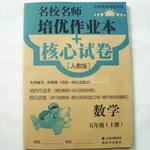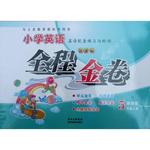题目内容
It was my first year teaching in a special class, and I wasn’t sure what to expect at our yearly Special Olympics sports meeting. My had some challenges, from learning disabilities to cerebral palsy (脑瘫).
Mark was one with the latter. Restricted to a , he had to fight his spasms (抽搐) just to control his movements. , he always had a positive attitude and greeted everyone with a huge smile. His classmates him and always took the time to make sure he was included in group activities, especially Mike, Andy and Lucas, three boys who were good at . Obviously, Mark wanted to be like them, unrestricted by the limitation of his , and watching them moving on the playing field seemed to fill him with .
When the day came, Mike, Andy and Lucas placed well in their sports events, and gave the calm audience something to cheer about. Mark sat in his wheelchair on the sidelines, them on. The final event of the day was the 400-meter race. was invited to either walk or run, according to their ability, around the length of the track.
When Mike, Andy and Lucas reached the finish line, they and turned to look behind them. At the of the crowd on the track, determined not to be left behind, was Mark. All his classmates had him. He was alone on the track with over half the distance left to . Mike, Andy and Lucas looked at each other, and a silent passed between them. Slowly, they jogged towards their friend, cheering him on he had done for them moments before.
The progress was , but in the end the three star runners and Mark the finish line together to the enthusiastic cries of their teachers and classmates. Seeing the look on Mark’s face and hands upraised, I came to understand what the Special Olympics.
Years later, I’m still cheering them on.
1.A. students B. friends C. partners D. classmates
2.A. bed B. machine C. desk D. wheelchair
3.A. Thus B. However C. Otherwise D. Besides
4.A. protected B. satisfied C. loved D. cared
5.A. expression B. practice C. studies D. sports
6.A. interests B. habits C. body D. mind
7.A. trust B. admiration C. fear D. worry
8.A. bringing B. cheering C. holding D. moving
9.A. Someone B. Everyone C. Anybody D. Nobody
10.A. average B. different C. entire D. extra
11.A. fell B. rested C . hurried D. paused
12.A. end B. front C. center D. top
13.A. left B. ignored C. passed D. helped
14.A. run B. jog C. cover D. walk
15.A. demand B. relief C. action D. thought
16.A. back B. along C. again D. on
17.A. while B. although C. since D. as
18.A. slow B. great C. boring D. relaxing
19.A. crossed B. arrived C. rushed D. got
20.A. left B. made C. kept D. found
1.A
2.D
3.B
4.C
5.D
6.C
7.B
8.B
9.B
10.C
11.D
12.A
13.C
14.C
15.D
16.A
17.D
18.A
19.A
20.B
【解析】
试题分析:文章讲述了作者在教书生涯中深受感动的一件事。在他所教的残疾孩子们中,Mark因行动不便,在一次学校组织的残疾人奥林匹克运动会中落在最后,然而他那三个即将到达终点的朋友却返回去跟Mark共同冲向终点。他们的行为不仅感动了在场的人们,也深刻地阐释了残疾人奥运会的真正意义所在。
1.A名词辨析。A. 学生; B. 朋友 ; C. 伙伴;D.同学。根据上文It was my first year teaching 可以判断作者是位老师,因此这里说的是“我”的学生们。答案选A。
2.D名词辨析。A. 床 ;B. 机器 ;C. 课桌;D. 轮椅。从前一句可知Mark患脑瘫,行动不便,由此可以推测他是靠轮椅活动,所以是被束缚在“轮椅”上,答案选D。
3.B副词辨析。A这样 ;B. 然而;C. 否则;D. 包括 。前句提到他必须跟自己的身体不便作斗争,本句提到他有着积极的态度,所以前后构成转折关系,因此选B。
4.C. 动词辨析。 A保护;B.满意;C.喜爱;D. 在意。联系上下文可知,他的同学们总是帮助他参加各种活动,由此推断他很受同学们的喜爱,答案选C。
5.D. 名词辨析。 A表达;B. 练习;C. 学习;D. 运动。由 “placed well in their sports events”可知,这三个学生擅长运动,故答案选D。
6.C名词辨析。 A. 兴趣; B. 习惯 ;C. 身体;D. 心理。Mark身患残疾,由情理可知他希望像他的朋友们一样,不受身体不便的束缚,因此选body。
7.B. 名词辨析。A 信任;B. 赞赏;C.害怕;D. 担忧。由上文内容可知Mark基本上不能活动,因此当看到别人在运动场上矫健的动作时,他会羡慕,会发出惊叹,故答案选B。
8.B. 动词辨析。A 带来 ; B.喝彩;C. 抓住;D. 移动。从上一句的“cheer about”以及情理的推测可知当朋友们比赛时,Mark会坐在轮椅里为他们加油喝彩,所以答案选B。
9.B不定代词辨析。A. 某人; B. 每一人; C. 任何人;D. 没人。由上下文可知所有的学生都被邀请沿着跑道走完或者跑完一圈,因此选B项。
10.C. 形容词辨析。A平均的;B. 不同的;C. 完全的;D. 额外的。由情理可知在赛跑中,应该要求所有学生走完或者跑完全程,故此处强调跑道的全长,所以答案选C。
11.D动词辨析。. A摔倒;B. 休息;C.匆忙;D. 暂停,停顿。根据turned to look behind them可知当三名学生到达终点的时候,他们停下来,转身看他们后面的同学,其他选项不符合语境,答案选D。
12.A名词辨析。A尽头,末尾;B.前面;C. 中心;D. 顶部。根据下文He was alone on the track 可知Mark落在了最后面,at the end of是固定搭配,表示“在……的末”,故答案选A。
13.C动词辨析。A.离开; B. 忽视;C. 经过;D. 帮助。根据He was alone on the track可知行动不便的Mark被所有的同学都超了过去,所以答案选C。
14.C动词辨析。A. 跑 ;B.慢跑;C.覆盖,走过路程;D. 走。由上下文可知同学们都超过了他,只有他自己还剩下一半多的路没走完,cover“行走”,符合语境,故答案选C。
15.D名词辨析。A.决定;B. 信仰;C. 行为;D. 思想,想法。从下文可知他们三个跑回去和Mark一起重新向终点线走去,由此判断当时他们彼此注视了一眼,心照不宣的产生了一个共同的想法,故选D。
16.A副词辨析。A. 返回;B. 沿着;C. 再次;D. 在上。根据上文可知他们已经到达了终点,因此这里是指他们返回去为Mark加油,故答案选A。
17.D连词辨析。A. 同时;B. 虽然;C. 既然;D. 由于,正如。由上文可知当这三个朋友比赛时,Mark在旁边为他们加油,喝彩,所以此处他们跑回去为Mark加油,就像Mark之前为他们加油一样。
18.A形容词辨析。A.慢的;B.伟大的,极好的;C. 无聊的; D. 放松的。根据上文he had to fight his spasms (抽搐) just to control his movements.可知Mark行动迟缓,故答案选A。
19.A动词辨析。A. 穿过;B. 到达;C. 冲;D.得到。从后半句的but可知,虽然过程很慢,但是最后他们三人跟Mark一起冲过了终点线,故答案选A。
20.B动词辨析。A. 离开;B. 造就,使。。。成为;C. 保持;D. 找到。最后作者表示通过这件事情,“我”明白了什么是特殊的残疾人奥运会。make表示“使成为”,其他选项不符合语境,故答案选B。
考点:考查故事类短文。

 名校名师培优作业本加核心试卷系列答案
名校名师培优作业本加核心试卷系列答案 全程金卷系列答案
全程金卷系列答案